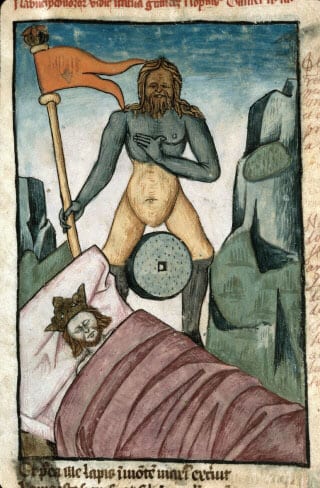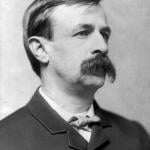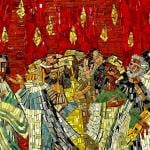
Many Christians in the United States feel as if they are spiritually and culturally in exile. For some, the feeling of exile results from their perception that the dominant Christian subculture is materialistic and power-driven. For others, the feeling of exile emerges from the growing religious and ethical pluralism surrounding the Christian community in the U.S., as well as from what they consider attacks on Christian identity and witness. No doubt, there are other reasons for this feeling of exile. In this context, we might resonate with the biblical book of Daniel in which Daniel and his Jewish friends Hananiah, Mishael, and Azariah display wisdom and faithful witness to the God of Israel while in exile in Babylon. Let’s consider this biblical book in the hope of discerning how to be faithful, missional witnesses to God while facing the possibility and reality of spiritual exile. The first post “How to Be Missional in Exile” can be found here. This second post begins with chapter 1 and the surrounding biblical meta-narrative and then turns to consideration of Daniel chapter 2 and the ominous dream of the great statue that is destroyed. It signifies kingdoms that are monuments to human pride and vain ambition. What is needed now more than ever are movements inspired by God’s kingdom that knows no end.
The book of Daniel signifies that God is about missional movements, not monuments. God and the Messianic kingdom were not threatened by Nebuchadnezzar’s reign or the removal of articles from the temple and Jerusalem and their placement in the temple of his god. In fact, God gave these temple articles and Judah’s king into the king of Babylon’s hand: “And the Lord gave Jehoiakim king of Judah into his hand, with some of the vessels of the house of God. And he brought them to the land of Shinar, to the house of his god, and placed the vessels in the treasury of his god” (Daniel 1:2; ESV). This is not an exception to the rule, but the rule itself with God. We find something similar happening much earlier in Israel’s history when God destroyed Israel’s high priest Eli’s corrupt household and handed over the Ark of the Covenant to the Philistines (See 1 Samuel 3-5).
It was/is all too easy for the people of Israel and for the church through the ages to put one’s confidence in a leader such as a king or president or priest or pastor as well as a structure like the ark or temple or church building, fortress or palace or capital city rather than to trust in God. God will have none of it. Perhaps the greatest indication of derailing missional movements and turning them into monuments is when we take our eyes off God and place our ultimate trust in other people, places, and symbols that signify to us status, stability, and security. A clear signal of whether we are fostering movements or fixating on building monuments is how we respond to the demise of leaders and downfall of nations and ministries, or even significant delays in building programs. Are we threatened, destabilized to the point of being undone, or do we recover as with Samuel (See 1 Samuel 7), or with Daniel (Daniel 2)?
God was not threatened when the Philistines took the Ark to Philistia and placed it in the house of their god Dagon (1 Samuel 5). Nor did Samuel appear to be threatened when Eli’s household fell and when the Ark was taken and then returned and yet kept at a distance (1 Samuel 3-7). The statue in Daniel chapter 2 was no threat either to God or to Daniel. God’s kingdom will be established. May the kingdoms of this world take note. No temple or statue or kingdom or human will ever stand in God’s place. Nebuchadnezzar would have to bow. Only those like Daniel and his friends who exhorted each other to look to God (Daniel 2:17-18), who gave God the praise for their wisdom and understanding (Daniel 2:27-28), who did not love their lives so much as to shrink from death (as we see in various places in Daniel; cf. Revelation 12:11), and who realize God raises up and brings down (Daniel 2:44), will never be put to shame.
God raises up movements and brings down monuments based on whether we humble ourselves in obedience or seek to exalt ourselves in disobedience. God elevates those who humble themselves and humbles those who exalt themselves, as we will find portrayed in Daniel (See also chapters 4 and 5, for example). Now let’s turn for a closer look at Daniel 2.
It is worth noting that in Daniel chapter 2, as throughout Daniel, God was shown to be in total control, not the rulers who seemingly controlled the fate of nations, including that of Judah and Israel. No wonder God was not threatened, though Nebuchadnezzar was deeply troubled by the mysterious dream(s) he had (2:1), which in turn led to despair for the magicians, enchanters, and sorcerers who were to be executed since they were unable to fulfill the king’s demand and retell the dream and then interpret it. They were correct in claiming that only God could make known the dream that required interpretation (Daniel 2:11-12). Again, God was shown to be in total control. Let’s unpack this point.
God was in total control and in a variety of ways. For one, God gave the dream about the statue to Nebuchadnezzar:
…there is a God in heaven who reveals mysteries, and he has made known to King Nebuchadnezzar what will be in the latter days (Daniel 2:28; cf. Daniel 2:1).
Moreover, God gave Daniel the dream and its interpretation:
Daniel answered the king and said, “No wise men, enchanters, magicians, or astrologers can show to the king the mystery that the king has asked, but there is a God in heaven who reveals mysteries, and he has made known to King Nebuchadnezzar what will be in the latter days. Your dream and the visions of your head as you lay in bed are these: To you, O king, as you lay in bed came thoughts of what would be after this, and he who reveals mysteries made known to you what is to be. But as for me, this mystery has been revealed to me, not because of any wisdom that I have more than all the living, but in order that the interpretation may be made known to the king, and that you may know the thoughts of your mind” (Daniel 2:27-30; ESV).
God was responsible for raising up mighty rulers and kingdoms signified by the statue made up of gold, silver, bronze, iron, and clay, including Nebuchadnezzar, who was the awesome statue’s head of gold:
You, O king, the king of kings, to whom the God of heaven has given the kingdom, the power, and the might, and the glory, and into whose hand he has given, wherever they dwell, the children of man, the beasts of the field, and the birds of the heavens, making you rule over them all—you are the head of gold (See for example Daniel 2:37-38).
God was also responsible for cutting out from the mountain the rock that smashed and destroyed the statue that symbolized the great kingdoms of the world:
As you looked, a stone was cut out by no human hand, and it struck the image on its feet of iron and clay, and broke them in pieces. Then the iron, the clay, the bronze, the silver, and the gold, all together were broken in pieces, and became like the chaff of the summer threshing floors; and the wind carried them away, so that not a trace of them could be found. But the stone that struck the image became a great mountain and filled the whole earth (Daniel 2:34-35; ESV).
Finally, God was and is responsible for the establishment of the kingdom that will never end.
And in the days of those kings the God of heaven will set up a kingdom that shall never be destroyed, nor shall the kingdom be left to another people. It shall break in pieces all these kingdoms and bring them to an end, and it shall stand forever, just as you saw that a stone was cut from a mountain by no human hand, and that it broke in pieces the iron, the bronze, the clay, the silver, and the gold. A great God has made known to the king what shall be after this. The dream is certain, and its interpretation sure (Daniel 2:44-45; ESV).
So, where does this leave us in seeking to come to terms with discerning how to foster missional movements rather than fixate on monuments, especially during times of extreme duress? Here are a few responses:
First, don’t be passive. Seek God in prayer. Daniel and his colleague did not panic or throw in the towel and wait to be executed along with the other wise men. They earnestly prayed to God who alone could grant them knowledge of the dream and discernment as to its interpretation.
Second, don’t take credit for the bestowal of God’s favor on various movements, knowing that we are dependent on God to display mercy, just as Daniel and his friends recognized (Daniel 2:18).
Third, realize at every turn that God is the ultimate source of wisdom and power. God alone raises up and brings down, fosters movements and brings down kingdoms that are really no more than graven images, statues, and monuments. Don’t place confidence reserved only for God concerning hoped-for deliverance in people, places, and national, economic or magical powers, or anything else that signifies status, stability, and security. Though he quickly forgot (See chapter 3), Nebuchadnezzar himself bore witness to God as the ultimate source of power and wisdom, just before he elevated Daniel and his friends for their faithful witness: “Truly, your God is God of gods and Lord of kings, and a revealer of mysteries, for you have been able to reveal this mystery” (Daniel 2:47).
Fourth, as we will see in Daniel chapter 3, live with reckless abandon and do not bow the knee to anyone other than God no matter the outcome. Whether God chooses to spare one’s life and raise one up (as was the case for Daniel and his friends, as reflected in Daniel 2 and 3), know that God’s kingdom will endure forever, while all other kingdoms will break apart and crumble, just like that statue of gold, silver, bronze, iron, and clay. Build on the rock of Jesus and his word that shatters statues and monuments old and new and makes missional movements secure (See Matthew 7:24-27).












